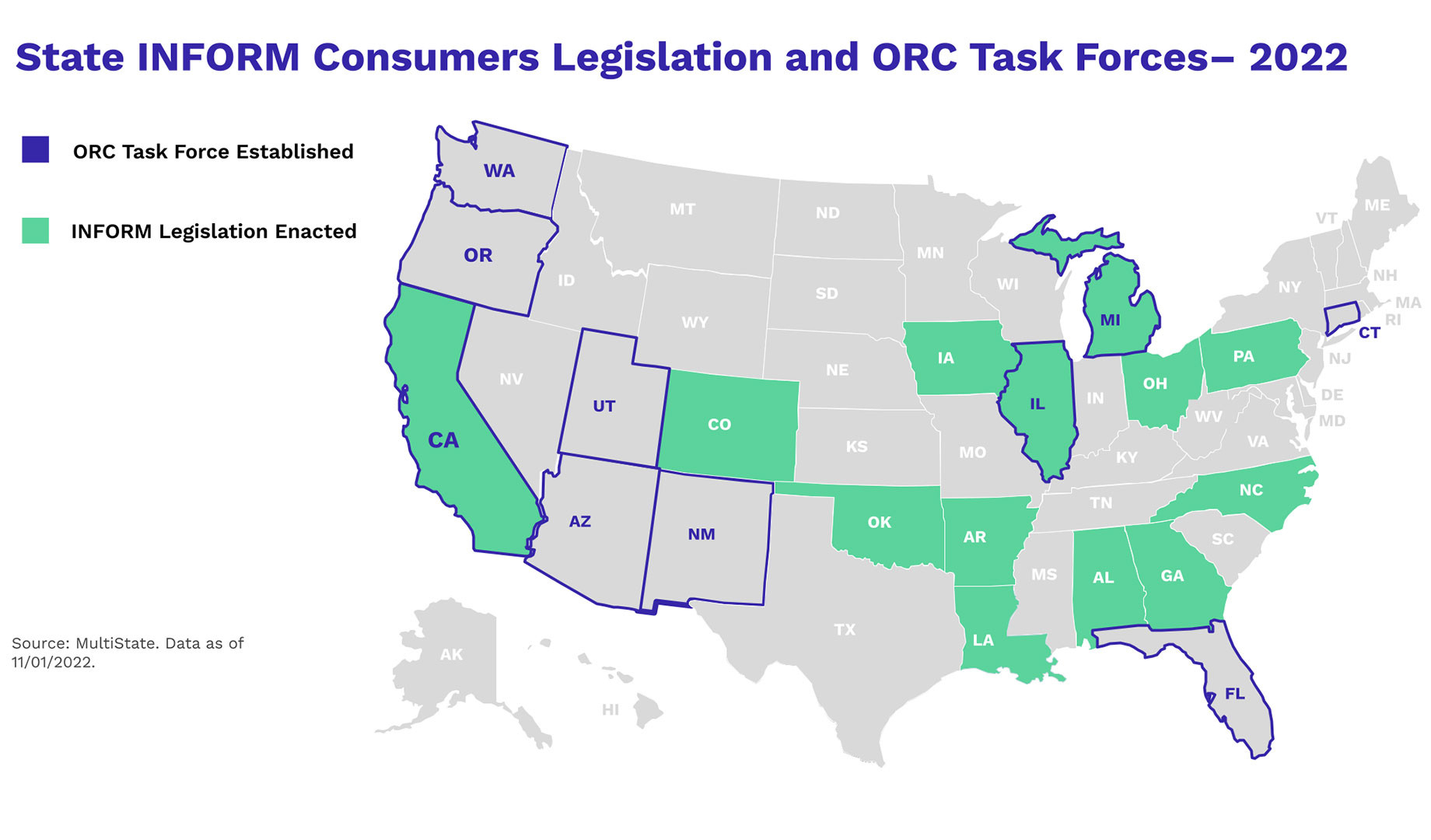The rise in organized retail crime (ORC) in recent years has caught the attention of federal and state lawmakers throughout the country. Congress introduced the INFORM Consumers Act (HR 5502) to curb criminals from reselling stolen goods on online marketplaces and 13 states have enacted similar versions of the federal bill. While enacting INFORM legislation is an important step in stopping theft against retailers and small businesses, state ORC task forces are emerging as equally important tools.
Currently, 10 states have created ORC task forces with no two being the same. Generally speaking, the task forces provide increased funding to support coordination among law enforcement, prosecutors and businesses to focus on stopping multi-jurisdictional retail crime operations. Supporters believe enacting INFORM legislation and establishing a task force gives law enforcement officials the information and support necessary to make a significant impact on slowing down retail theft.
How are ORC Task Forces Established?
Of the states that have a task force, five were established through legislation — Arizona (AZ HB 2383), California (CA AB 1065), Illinois (IL HB 1091), Michigan (MI HB 5783) and Utah (UT HB 461) — while the other half were established directly by each state’s attorney general. Annual funding is appropriated in the state budget each year. In the case of Illinois, lawmakers there were able to enact INFORM legislation and appropriate $5 million dollars to establish an ORC task force in one single bill.
Meanwhile, the states that have created an ORC task force through the attorney general or by a collection of stakeholders (Connecticut, Florida, New Mexico, Oregon and Washington) have done so since their state’s AG has the statutory authority to create one and also see organized retail crime as a serious enough problem.
What to Look for in 2023?
There is a strong chance that INFORM will pass Congress at the end of the year through the National Defense Authorization Act (NDAA), must-pass federal defense legislation, bringing uniformity to all state laws on the matter. Should that occur, relevant stakeholders at a state level will begin to shift their focus towards establishing ORC task forces in as many states as possible. The potential to create task forces without legislation provides an opportunity for stakeholders to engage with AG offices and work to get task forces set up quickly and efficiently.

ORC Task Forces in the News
- California Increases Efforts to Combat Organized Retail Theft Ahead of Busy Holiday Shopping Season
- Illinois’s ORC Task Force Recovers Millions of Dollars Worth of Stolen Goods
- California Task Force Takes Down Million Dollar Statewide Theft Ring
- New Mexico AG Reports on Retail Theft Operation, Nets Multiple Arrests